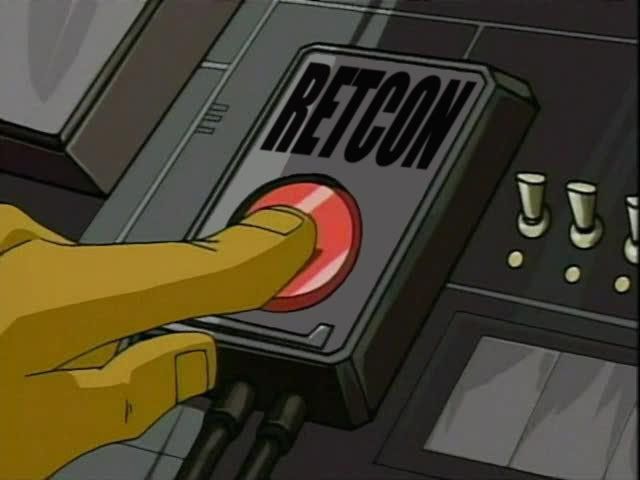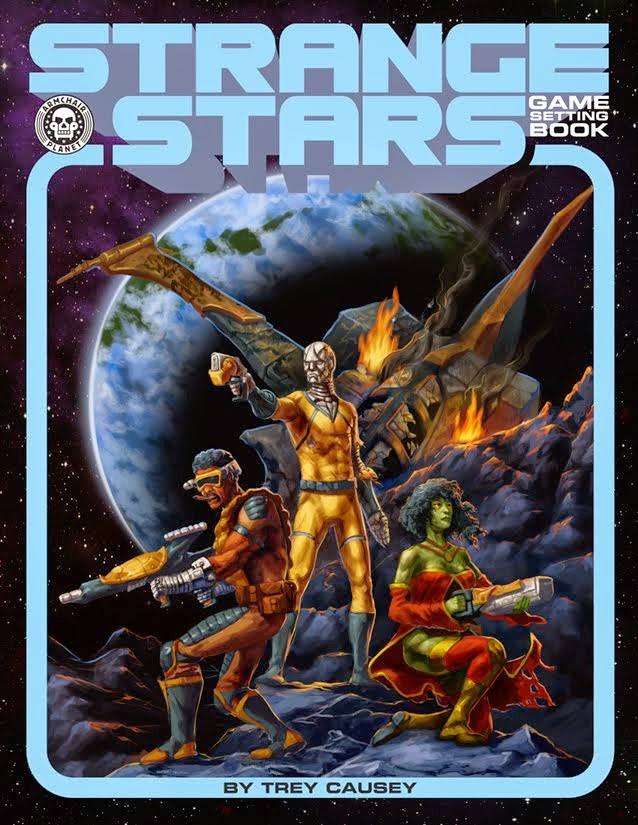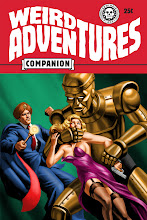26 minutes ago
Monday, January 26, 2015
The Shifting Setting
Changing elements of continuity or setting through retcon or revision are common in comic books. When we include alternate universes like the Ultimate Universe or DC's multi-Earths, the number of variant characters, organizations, and situations gets even greater.
Reading Viriconium by John M. Harrison was the first time I had seen this sort of thing in a fantasy world. Characters often retain the same name and vaguely similar characteristics, but their histories are different, and so is the history of the city they inhabit. Viriconium always seems to have the same streets, the same neighborhoods, even the same shops, but it doesn't always seem to be same place.
I imagine Harrison feels like he does this for different reasons than comic book writers, but ultimately I think what they have in common is a desire not to straitjacketed by the past in the stories they want to tell.
It got me thinking about how rpg settings don't have to be set in stone. Maybe instead of growing into Tekumel with a lot of detail, each campaign can be sort of variations of the same basic setting sketch. It seems like this could have a few advantages: the style of the setting could change--new elements (new rules, new races) could be easily introduced that might have been uneasy fit before. At the same time, a familiarity with basic things like locations and cultures could be maintained.
This would also be away to participative setting development to players that might be a be hesitant. They get a "first pass" where the GM does most of the work, then a "redo" where they reconfigure things as they go.
Subscribe to:
Post Comments (Atom)








10 comments:
A very intriguing idea!
I suspect that all settings (especially for games) are always already shifting. Since perception is rooted in a number of subjective filters the way one reader understands a setting can be very different from how another reader receives it. I'm guessing that if you took two "by-the-book" fans of any given setting and had them run games they'd still be notably different in some areas.
Part of that is attributable to a "Death of the Author" effect. Once Tekumel was out there in the wilds, there were bound to be as many Tekumels as there were people reading it. There's no way to transmit "Barker's Tekumel," and I recall reading that he even encouraged that shifting.
Another part happens within a creator because they might have different needs from their creation at different times or simply be different people even though they're still pottering with their invented world. The Middle Earth of The Hobbit is not the Middle Earth of The Return of the King for a host of reasons.
Some authors seem to start out world-building with a sense of the shifts to come. I read once (was it in Sword & Sorcerer?) that one of the main differences between "high fantasy" and "sword & sorcery" is that high fantasy tended to have a nailed-down map of the world, while sword & sorcery worlds tend to accrete detail as the author adds more stories to their canon.
And recons happen for a similarly wide range of reasons from change in personal taste (Klingons in the original Star Trek), expediency (Arthur Conan Doyle bringing Sherlock Holmes back from the dead after Reichenbach Falls), to corporate decision (good-bye Star Wars Expanded Universe). One of the most fascinating things I got from my re-read of the original Ravenloft setting box set last year was that they build in a rationale for retconning the setting in massive ways (conjunctions) right from the get-go. Was that a vote of no-confidence or tremendous foresight? I'm feeling generous today, so let's say the latter.
@Chris - Thanks.
@Jack - I agree with all of that, though the first situation you mention isn't really what I'm talking about here. I would say a setting written by one person, but used by another isn't so much shifted as a different setting--albeit closely related.
As to the later points, I would say that in most cases authors aren't aware they shifted things, as it happens over time and slowly. Stephen King (for example) didn't set out to change the world presented in the Gunslinger for the most part, it just happen in the midst of telling an evolving story over decades. I'm talking about more abrupt, drastic change, consciously done.
If you haven't read it, Harrison more or less lays out his rationale for the shifting histories of Viriconium in this essay:
http://www.reddit.com/r/writing/comments/2p80gc/a_short_essay_by_the_great_scifi_author_m_john/
In RPG terms, you could say that the argument supports a "bottom up" approach, that beginning with an exhaustive account of your world's history, a map of the entire world, and other similar details, is often both unnecessary and boring, at once too much and too little.
When you get far enough away from "worldbuilding," you get to Viriconium, which is a world un-building itself. I've read a lot about Viriconium being ungameable, but I think that quality makes it the most gameable setting. Everyone's Viriconium will be different by design (and you'll get to deal with the implications of that in-game), you'll never get bogged down in "canon," you reign in all of thse excessive impulses that Harrison calls "the clomping foot of nerdism," and you build a world not as a god looking down on your creation, but alongside your players, from inside it, one detail at a time. And then when you want to tell a different story (or play a different game), you tear it all down and start over.
@John - The problem I find with Harrison's argument is it boils down to "worldbuilding I don't like is objectively bad." It's fine for him to have his tastes, but I'm less interested in his proscriptiveness. And from his prospective, whether you build a world one detail at a time collaboratively or "top dowen" you presumably still have built a constricting "canon."
Also "tearing it all down" isn't what I was trying to suggest here--and not what Harrison does, as many place names, geographical relationships, and peoples names and occupations are relatively stable throughout the stories.
Hm. Never thought about it this way, but we retcon every time we start up new level 1 characters. Thyatis and Karameikos are always familiar, but often they take on a different air. Sometimes Karameikos is wilderlands and sometimes it's mostly tamed. Sometimes, we stress the efficiency of Thyatians and sometimes their treachery. Sometimes Alphatia is wondrous and sometimes it's oppressive. It's an interesting take.
I think my first exposure came when the Tenchi was on Cartoon Network, and I realized the series weren't continuous, but constituted three alternate timelines.
@Scott - Sounds like you guys are doing it already, then!
@Peter - Tenchi is a great example of this, and one I had forgotten about. I suppose the different versions of the Transformers continuities are, too.
Not sure if this is perfectly apropos or not, but a few years back I wrote up a Call of Cthulhu scenario that could probably be titled the Artifact of Uncontrollable Retconning.
Never playtested it though. Seems like it might get pretty out of control.
Cool! Well, you did call it "uncontrollable."
Post a Comment